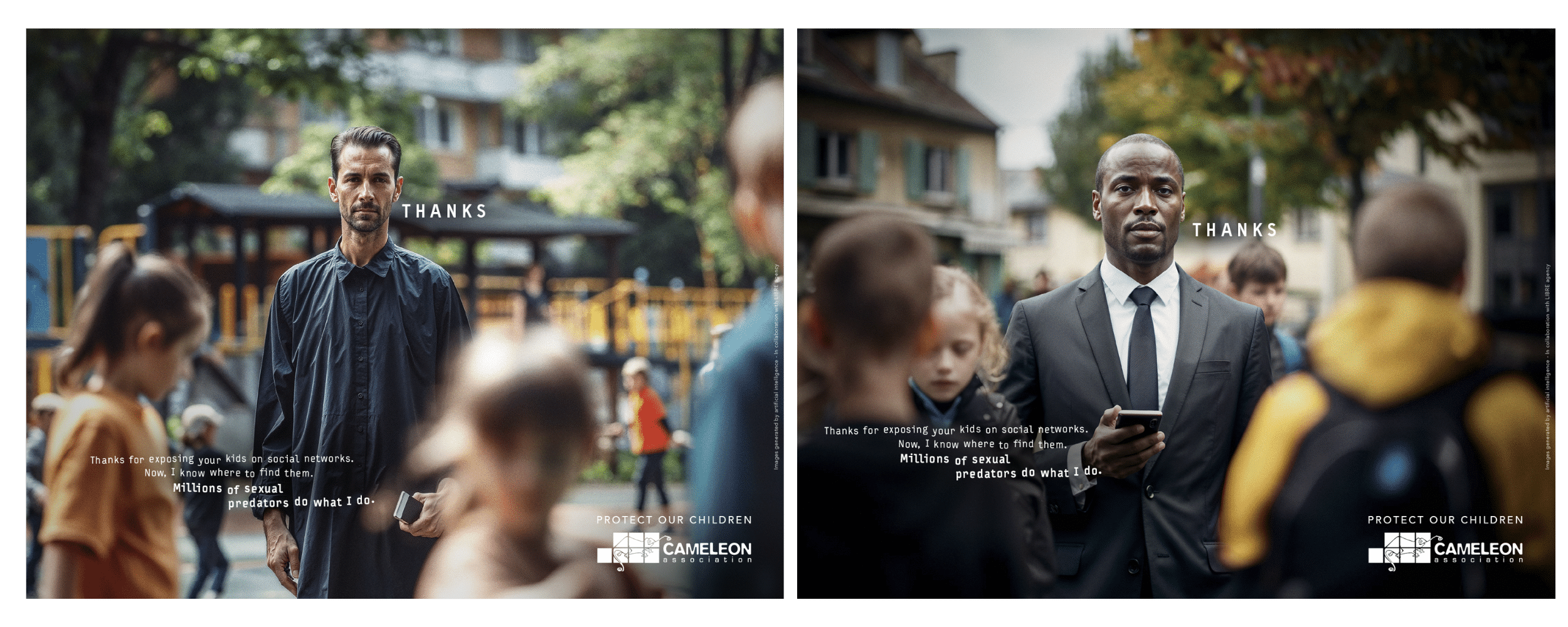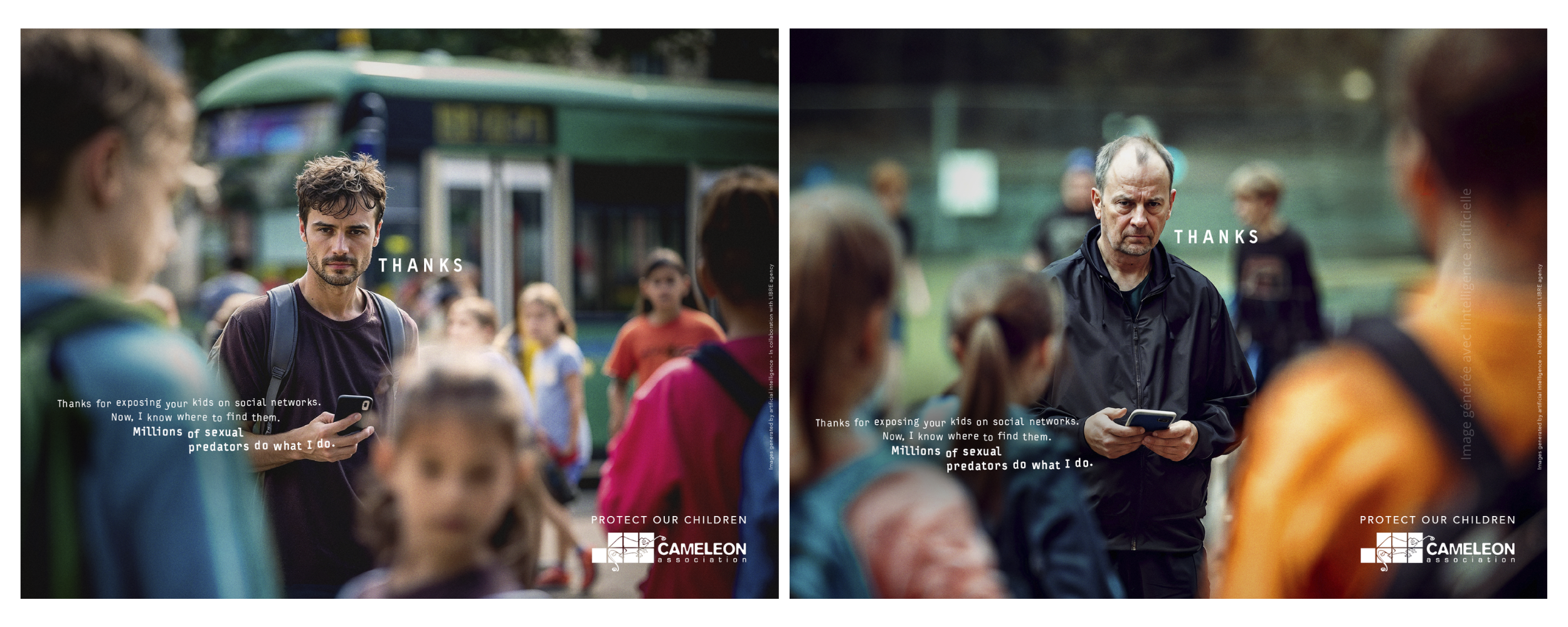
“THANKS”
A campaign in collaboration with LIBRE MullenLowe
Sharing photos of children online;
why sexual predators say thanks.
Before the age of 13, a child appears on average in 1,300 photos posted by those close to them online.*
Posting a photo or video on the Internet has become an ordinary gesture. We share everyday moments which bring the greatest happiness to our loved ones: this is what we call “sharenting”. But this practice has risks. Indeed, by providing access, we are actually disclosing much more. It is easy to recognize children, learn more about their habits or hobbies. We can sometimes even find the name of their school, their sports club, or the park where they meet with friends on Wednesday afternoons. We wouldn’t give this information to strangers on the street… So why would we do it online?
*2018 report from the Office of the Children’s Commissioner for the United Kingdom
For Violaine Monmarché, Deputy General Director of CAMELEON “We all want to share the back-to-school photo, with our little ones very proud of their new school bag in front of the school, of water games in swimsuits… And we don’t see the harm. The aim of this campaign is to expose our habits in the virtual world and the reality behind it; Without stigmatizing parents but by asking them about the consequences, which are often unknown.”
OUR FILM
A hidden camera social experiment: a mother distributes photos of her daughter to people in the street, revealing intimate details such as her frequented places or her hobbies. In one minute, this scenario highlights the risks of sharing personal information on social media, especially when it comes to children.
UNEQUIVOCAL POSTERS
4 visuals, 4 men, 4 locations. Each one presents a different face, blending into the mass of ordinary people, into the everyday places of children. The phone in his hand seems innocuous, it’s just another dad leaving school, a young person who seems nice, a grandpa on the side of the sports field… Sexual predators exist everywhere and they don’t always look like the image we have of them.
The message is clear: the border between the digital world and the real world is not impermeable: 40% of people who have viewed child abuse content online tried to contact a child*. And like the faces of print predators, they could be anyone. (*Protect Children Suojellan Lapsia, 2024)
OUR ACTIONS IN FRANCE
INFORM
on child rights and risks linked to the Internet and social networks
RAISE AWARENESS
on sexual violence and online child sexual abuse
ACCOMPANY
young people and parents in digital uses
SPECIAL THANKS
A big thank you to the LIBRE Mullenlowe agency for co-creating and deploying this campaign through a pro bono partnership.
CAMELEON : Laurence Ligier, Violaine Monmarché, Socheata Sim, Charlotte Leese
Agency : Mélanie Pasquina, Florent Kervot et Philippe Adenot
Creative directors : Antoine Colin et Eric Lavenac
Artistic direction : Maxime Colin et Sebastien Annoni
Film production : Dilo TV – Sébastien Courbon
Print & Photographie : Marc Da Cunha Lopez
PR : Libre Mullenlowe – Estelle Gouin et Camille Fleury

